Ray Conniff - Mis 30 Mejores Canciones (2003)
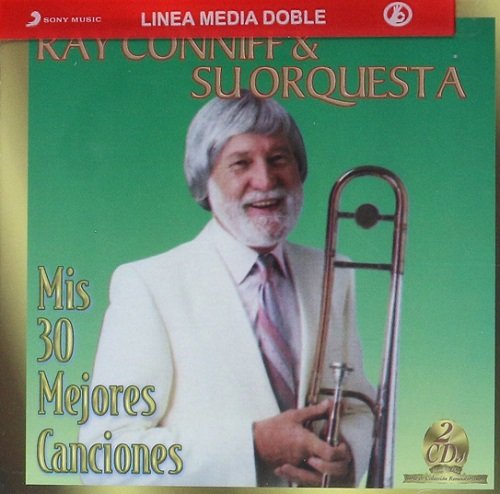
Artist: Ray Conniff
Title: Mis 30 Mejores Canciones
Year Of Release: 2003
Label: Sony
Genre: Pop, Jazz, Easy Listening
Quality: Mp3 320 / Flac (tracks)
Total Time: 01:23:35
Total Size: 208/583 Mb
WebSite: Album Preview
Title: Mis 30 Mejores Canciones
Year Of Release: 2003
Label: Sony
Genre: Pop, Jazz, Easy Listening
Quality: Mp3 320 / Flac (tracks)
Total Time: 01:23:35
Total Size: 208/583 Mb
WebSite: Album Preview
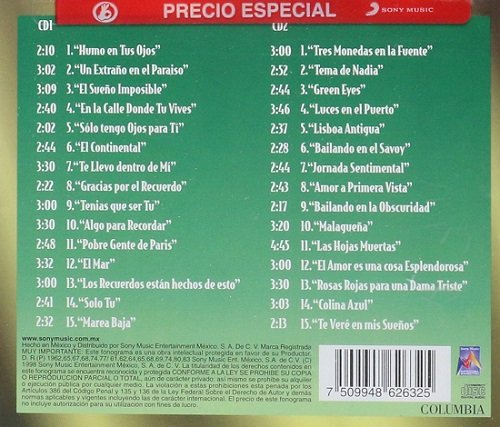
Tracklist:
CD 1:
01. Humo En Tus Ojos
02. Un Extrano En El Paraiso
03. El Sueno Imposible
04. En La Calle Donde Tu Vives
05. Solo Tengo Ojos Para Ti
06. El Continental
07. Te Llevo Dentro De Mi
08. Gracias Por El Recuerdo
09. Tenias Que Ser Tu
10. Algo Para Recordar
11. Pobre Gente De Paris
12. El Mar
13. Los Recuerdos Estan Hechos De Esto
14. Solo Tu
15. Marea Baja
CD 2:
01. Tres Monedas En La Fuente
02. Tema De Nadia
03. Green Eyes
04. Luces En El Puerto
05. Lisboa Antigua
06. Bailando En El Savoy
07. Jornada Sentimental
08. Amor A Primera Vista
09. Bailando En La Obscuridad
10. Malaguena
11. Las Hojas Muertas
12. El Amor Es Una Cosa Esplendorosa
13. Rosas Rojas Para Una Dama Triste
14. Colina Azul
15. Te Vere En Mis Suenos
Joseph Raymond Conniff (November 6, 1916 – October 12, 2002) was an American bandleader and arranger best known for his Ray Conniff Singers during the 1960s.
After serving in the U.S. Army in World War II (where he worked under Walter Schumann), he joined the Artie Shaw big band and wrote many arrangements for him. After his stint with Shaw, he was then hired by Mitch Miller, then head of A&R at Columbia Records, as their home arranger, working with several artists including Rosemary Clooney, Marty Robbins, Frankie Laine, Johnny Mathis, Guy Mitchell and Johnnie Ray. He wrote a top 10 arrangement for Don Cherry's "Band of Gold" in 1955, a single that sold more than a million copies. Among the hit singles he backed with his orchestra (and eventually with a male chorus) were "Yes Tonight Josephine" and "Just Walkin' in the Rain" by Johnnie Ray; "Chances Are" and "It's Not for Me to Say" by Johnny Mathis; "A White Sport Coat" and "The Hanging Tree" by Marty Robbins; "Moonlight Gambler" by Frankie Laine; "Up Above My Head," a duet by Frankie Laine and Johnnie Ray; and "Pet Me, Poppa" by Rosemary Clooney. He also backed up the albums Tony by Tony Bennett, Blue Swing by Eileen Rodgers, Swingin' for Two by Don Cherry, and half the tracks of The Big Beat by Johnnie Ray. In these early years he produced similar-sounding records for Columbia's Epic label under the name of Jay Raye (which stood for "Joseph Raymond") amongst them a backing album and singles with Somethin' Smith and the Redheads, an American male vocal group.
Between 1957-68, Conniff had 28 albums in the American Top 40, the most famous one being Somewhere My Love (1966). He topped the album list in Britain in 1969 with His Orchestra, His Chorus, His Singers, His Sound, an album which was originally published to promote his European tour (Germany, Austria, Switzerland) in 1969. He also was the first American popular artist to record in Russia—in 1974 he recorded Ray Conniff in Moscow with the help of a local choir. His later albums like Exclusivamente Latino, Amor Amor, and Latinisimo made him very popular in Latin-American countries, even more so after performing in the Viña del Mar International Song Festival. In Brazil and Chile he was treated like a young pop superstar in the 1980s and 1990s when he was in his 70s and 80s. He even played live with his orchestra and eight-person chorus in large football stadiums as well as in Viña del Mar.
Conniff commented, "One time I was recording an album with Mitch Miller - we had a big band and a small choir. I decided to have the choir sing along with the big band using wordless lyrics. The women were doubled with the trumpets and the men were doubled with the trombones. In the booth Mitch was totally surprised and excited at how well it worked." Because of the success of his backing arrangements, and the new sound Conniff created, Miller allowed him to make his own record, and this became the successful ’s Wonderful!, a collection of standards that were recorded with an orchestra and a wordless singing chorus (four men, four women). He released many more albums in the same vein, including ’s Marvelous (1957, gold album), ’s Awful Nice (1958), Concert in Rhythm (1958, gold album), Broadway in Rhythm (1958), Hollywood in Rhythm (1959), Concert in Rhythm, Vol. II (1960), Say It With Music (1960), Memories Are Made of This (1960, gold album), and ’s Continental (1962). His second album was Dance the Bop! (1957). It was an experiment by one of the brass at Columbia to cash in on a conceived dance step creation, but from the outset, Conniff disliked it. When it sold poorly, he had it withdrawn from the market.
After serving in the U.S. Army in World War II (where he worked under Walter Schumann), he joined the Artie Shaw big band and wrote many arrangements for him. After his stint with Shaw, he was then hired by Mitch Miller, then head of A&R at Columbia Records, as their home arranger, working with several artists including Rosemary Clooney, Marty Robbins, Frankie Laine, Johnny Mathis, Guy Mitchell and Johnnie Ray. He wrote a top 10 arrangement for Don Cherry's "Band of Gold" in 1955, a single that sold more than a million copies. Among the hit singles he backed with his orchestra (and eventually with a male chorus) were "Yes Tonight Josephine" and "Just Walkin' in the Rain" by Johnnie Ray; "Chances Are" and "It's Not for Me to Say" by Johnny Mathis; "A White Sport Coat" and "The Hanging Tree" by Marty Robbins; "Moonlight Gambler" by Frankie Laine; "Up Above My Head," a duet by Frankie Laine and Johnnie Ray; and "Pet Me, Poppa" by Rosemary Clooney. He also backed up the albums Tony by Tony Bennett, Blue Swing by Eileen Rodgers, Swingin' for Two by Don Cherry, and half the tracks of The Big Beat by Johnnie Ray. In these early years he produced similar-sounding records for Columbia's Epic label under the name of Jay Raye (which stood for "Joseph Raymond") amongst them a backing album and singles with Somethin' Smith and the Redheads, an American male vocal group.
Between 1957-68, Conniff had 28 albums in the American Top 40, the most famous one being Somewhere My Love (1966). He topped the album list in Britain in 1969 with His Orchestra, His Chorus, His Singers, His Sound, an album which was originally published to promote his European tour (Germany, Austria, Switzerland) in 1969. He also was the first American popular artist to record in Russia—in 1974 he recorded Ray Conniff in Moscow with the help of a local choir. His later albums like Exclusivamente Latino, Amor Amor, and Latinisimo made him very popular in Latin-American countries, even more so after performing in the Viña del Mar International Song Festival. In Brazil and Chile he was treated like a young pop superstar in the 1980s and 1990s when he was in his 70s and 80s. He even played live with his orchestra and eight-person chorus in large football stadiums as well as in Viña del Mar.
Conniff commented, "One time I was recording an album with Mitch Miller - we had a big band and a small choir. I decided to have the choir sing along with the big band using wordless lyrics. The women were doubled with the trumpets and the men were doubled with the trombones. In the booth Mitch was totally surprised and excited at how well it worked." Because of the success of his backing arrangements, and the new sound Conniff created, Miller allowed him to make his own record, and this became the successful ’s Wonderful!, a collection of standards that were recorded with an orchestra and a wordless singing chorus (four men, four women). He released many more albums in the same vein, including ’s Marvelous (1957, gold album), ’s Awful Nice (1958), Concert in Rhythm (1958, gold album), Broadway in Rhythm (1958), Hollywood in Rhythm (1959), Concert in Rhythm, Vol. II (1960), Say It With Music (1960), Memories Are Made of This (1960, gold album), and ’s Continental (1962). His second album was Dance the Bop! (1957). It was an experiment by one of the brass at Columbia to cash in on a conceived dance step creation, but from the outset, Conniff disliked it. When it sold poorly, he had it withdrawn from the market.
![Matt Choboter - And Then There Were The Sounds Of Birds (2026) [Hi-Res] Matt Choboter - And Then There Were The Sounds Of Birds (2026) [Hi-Res]](https://www.dibpic.com/uploads/posts/2026-02/1771562657_qb70awhgfhge8_600.jpg)
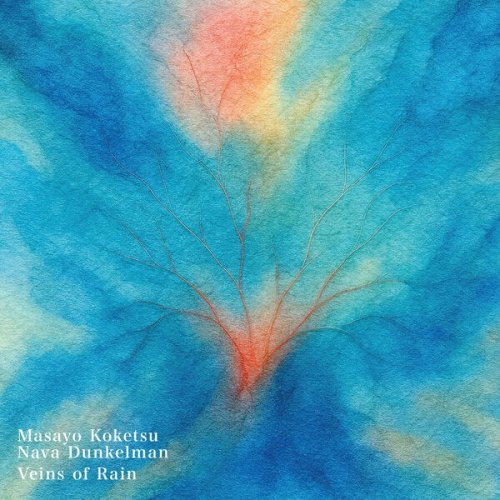
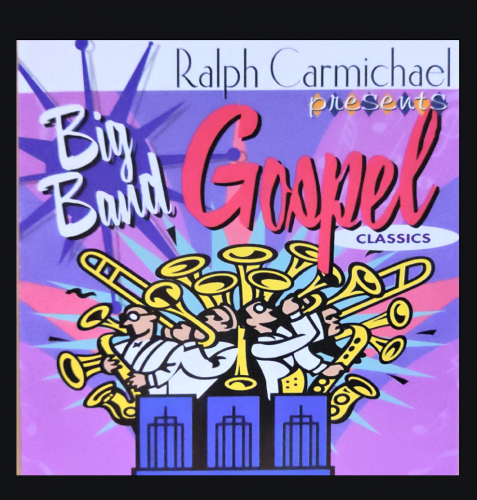

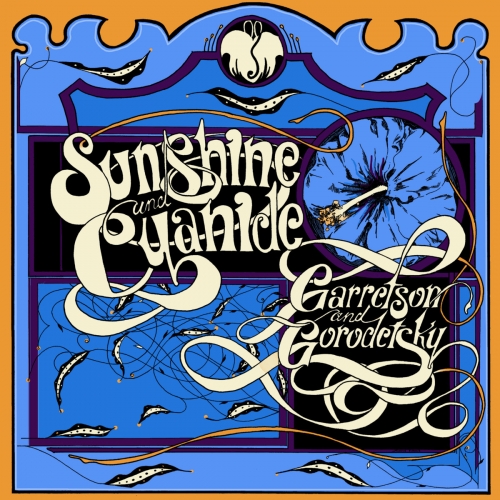
![L'Oiseau Ravage - Vertiges de la mue (2026) [Hi-Res] L'Oiseau Ravage - Vertiges de la mue (2026) [Hi-Res]](https://img.israbox.com/img/2026-02/20/nx23lj9uf6shoeud9r81rkfqi.jpg)
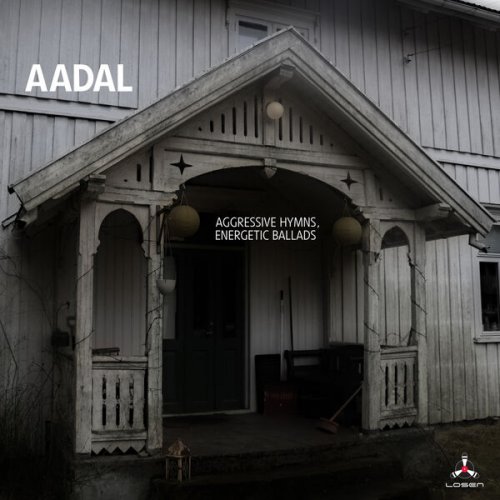

![Acid Mothers Reynols, Acid Mothers Temple, Reynols - Vol. 3 (2024) [Hi-Res] Acid Mothers Reynols, Acid Mothers Temple, Reynols - Vol. 3 (2024) [Hi-Res]](https://img.israbox.com/img/2026-02/21/vgzin7mjpuc9xi8v2ce3z1jc8.jpg)